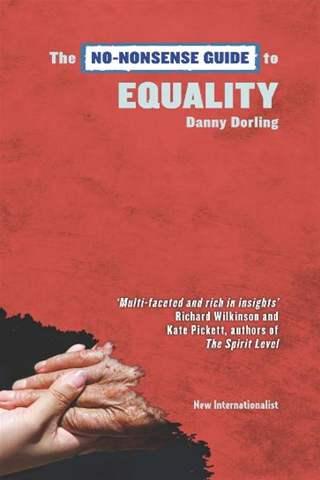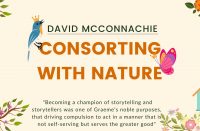The political left has been unable to counter the vision of wealth, personal autonomy and traditional values offered by conservative proponents of the free market. To my mind – which admittedly has a left academic bias – we will need a new way of thinking to do so. In this smart and readable book, Danny Dorling may well be a pioneer of a new sort of progressive thought and action.
The political left has been unable to counter the vision of wealth, personal autonomy and traditional values offered by conservative proponents of the free market. To my mind – which admittedly has a left academic bias – we will need a new way of thinking to do so. In this smart and readable book, Danny Dorling may well be a pioneer of a new sort of progressive thought and action. The professor of human geography at England’s University of Sheffield does not offer a comprehensive progressive philosophy in No-Nonsense Guide to Equality, but he does provide something that is potentially more valuable at this moment in time: a place to stand.
In a manner reminiscent of the wildly successful strategy of the right wing’s market apostles, Dorling starts with a simple idea that is – to me – obviously true: all of us are roughly equal in potential. But he doesn’t stop to carefully defend this position. Instead, Dorling rushes ahead to show the better world that can result when the relative equality of our abilities is taken seriously. His arguments are a series of plainly stated propositions marked by an absolute refusal to cede ground to those who might question his basic premise. Some are clear and categorical: “We work best, behave best, play best and think best when we are not laboring under the assumption that some of us are much better, more deserving and so much more able than others.”
Others ideas require more explanation. Sewers “make us all more equal,” Dorling writes, because they provide better public health to both rich and poor. Occasionally his assertions seem a bit strange, and need more explanation. Dorling makes a puzzling claim that lower speed limits in residential areas result in a more equal society, for example. Along the way, he discusses the virtues of small, local schools; cites equality as a factor in reducing teen pregnancy; and expresses his genuine sympathy for the privileged children of pop singers, who struggle to grasp our essential equality.
Canada comes off poorly in Dorling’s assessment, so check your love of our superior safety net at the door. We are grouped with the US and UK as nations that have given up on the equalities we achieved in the 1950s, 60s and 70s, reverting to levels of inequality not seen since the depression years. In this, we (and our English-speaking brethren) are alone among wealthy nations. Continental Europeans have done a better job of maintaining their equalities. Many have made the political choice to maintain funding for schools and childcare, rejecting the argument that the free market required that funding to be slashed. The result is that countries such as Norway, Sweden and Finland continue to combine affluence with far greater equality than we manage.
Although Dorling’s writing is always clear, The No-Nonsense Guide to Equality is something of an organizational mash-up. Dorling’s arguments also do not constitute a new way of leftist thinking, or not exactly, anyway. He counsels us to reject an idealized socialism, but if we on the left were to reject socialism, we would be rejecting the left’s own history, and with it a diverse body of thinking that has much to teach us. Still, this book makes a valuable contribution to the emerging focus on equality, which may yet be a new turn of the wheel. Certainly Dorling’s approach is less about building an alternative – or about resisting global capitalism – than it is a full-frontal assault on the foundations of a global order built on inequality, and a vision of something that can take its place.
The No-Nonsense Guide to Equality, Danny Dorling, Oxford: New Internationalist, 2012, 176 pages
Subscribe now to get more book reviews in your mailbox!













